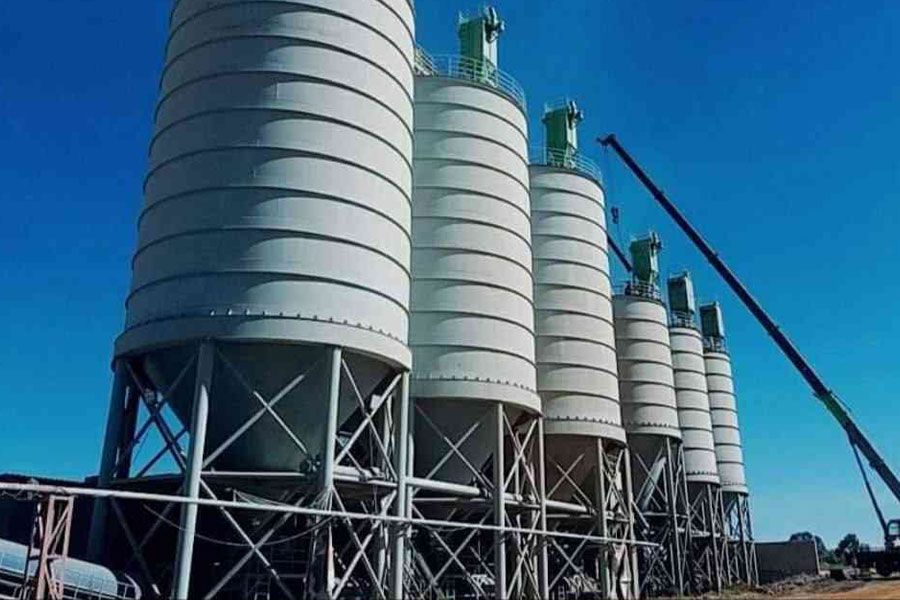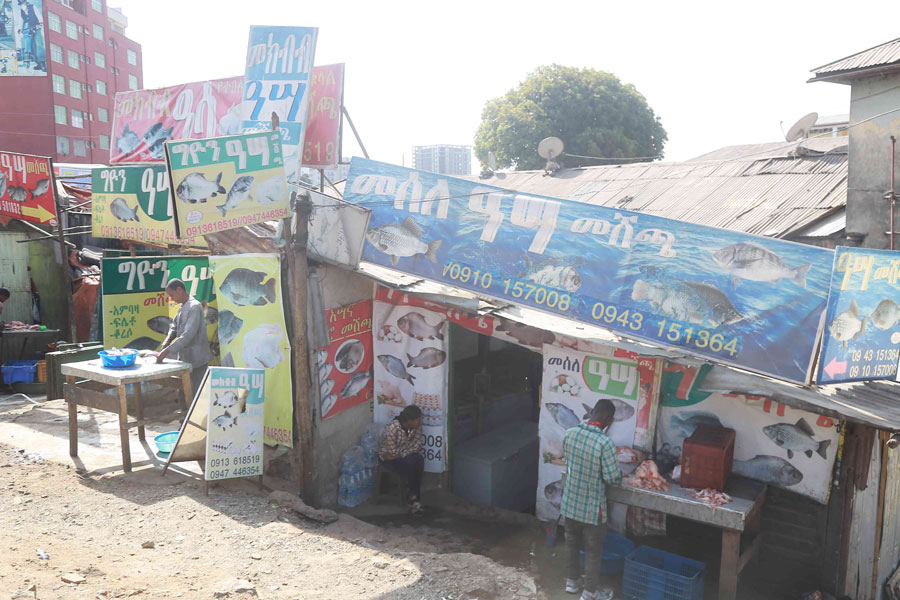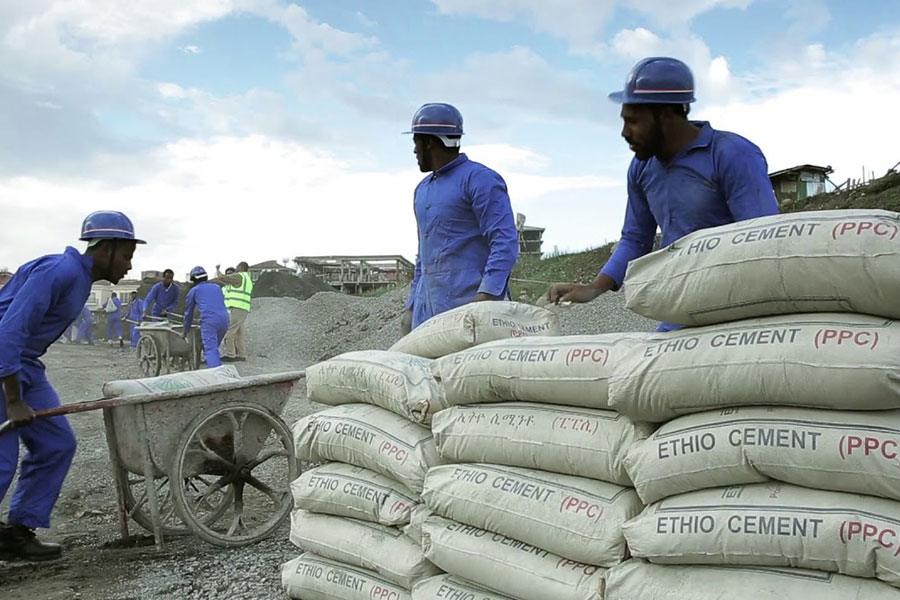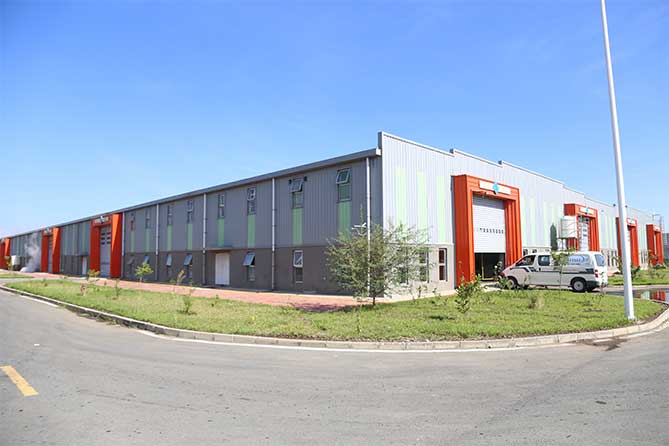
Radar | Dec 25,2021
Shocked by the escalating price of cement, authorities at the Ministry of Trade & Industry have begun to take a series of measures hoping to discipline the battered cement industry and supply chain. A quintal of cement sold for as high as 750 Br last week.
One of these measures will be legal action against individuals found hoarding cement and facilitating the redistribution of any cement that is confiscated from the hoarders, according to Melaku Alebel, minister of Trade. Officials from the Ministry are to be assigned to factories to monitor and oversee production and distribution.
The announcements come a week after the Construction Contractors Association put out a call of distress about the ever-climbing prices and decried chronic shortages of cement in the market. Leaders of the Association welcome these measures, together with the reopening of Messebo Cement Factory in Tigray Regional State, as positive steps toward steadying the market.
Messebo's resumption of production increases the amount of cement available in the market, but since the problem circled around distribution, the authorities should work more on regulating the supply chain, according to Girma Habtemariam, president of the Association.
Messebo restarted partial production on March 20, 2021, following a 130-day shutdown due to the interruption of electricity as a result of the war in the Regional State. The cement plant, which was established in 1997, is located on the outskirts of Meqelle, the regional capital. The plant did not incur significant damage during the conflict; however, after the conflict eased, most of its equipment was looted, lost or damaged.
"Cement production machinery hasn’t been damaged," Robel Legesse, communications manager at Messebo, confirmed to Fortune. "However, operational materials such as office equipment, spare parts, computers and vehicles have been damaged or lost."
Managers at Messebo are currently conducting a general inventory to assess the extent of the damage and financial losses incurred.
The factory, which has the capacity of producing 7,000tn of cement a day and over two million annually, is operating at a third of its capacity. It is producing clinker, an intermediate product in cement production. Due to security issues, the factory is sourcing raw materials from two of the four quarries that are located within a 100Km radius of the factory: Shuguwa Shugi, Adi Mesno, Wuqro and Mesenkot.
All employees of the factory, especially those who operate the machines, have returned to work despite there being a curfew and a state of emergency in effect in the Regional State.
Employees that are not involved in the operation of the machinery are on paid leave.
Messebo's operation will no doubt have a positive effect on the country's construction industry, particularly in the northern regions, since contractors in that area acquire cement specifically from Messebo, according to Yehualaw Sisay, managing director of Two Y Engineering Construction.
Contractors were buying a quintal of cement for more than 1,000 Br due to Messebo's closure, leading to project delays and contract cancellations.
Yehualaw indicated that even though factories are producing and offering their products to the market, there are problems in distribution that need to be addressed. He sees the measures being taken by the Ministry as a good first step to solving these problems.
PUBLISHED ON
Mar 27,2021 [ VOL
21 , NO
1091]

Radar | Dec 25,2021

Fortune News | May 20,2023

Radar | Jun 22,2024

Agenda | Feb 25,2023

Radar | Jul 13,2020

Radar |

Fortune News | Oct 01,2022

Fortune News | Apr 04,2020

Radar | Mar 12,2022

Fortune News | Jul 13,2019

Dec 22 , 2024 . By TIZITA SHEWAFERAW
Charged with transforming colossal state-owned enterprises into modern and competitiv...

Aug 18 , 2024 . By AKSAH ITALO
Although predictable Yonas Zerihun's job in the ride-hailing service is not immune to...

Jul 28 , 2024 . By TIZITA SHEWAFERAW
Unhabitual, perhaps too many, Samuel Gebreyohannes, 38, used to occasionally enjoy a couple of beers at breakfast. However, he recently swit...

Jul 13 , 2024 . By AKSAH ITALO
Investors who rely on tractors, trucks, and field vehicles for commuting, transporting commodities, and f...

Oct 11 , 2025
Ladislas Farago, a roving Associated Press (AP) correspondent, arrived in Ethiopia in...

Oct 4 , 2025
Eyob Tekalegn (PhD) had been in the Governor's chair for only weeks when, on Septembe...

Sep 27 , 2025
Four years into an experiment with “shock therapy” in education, the national moo...

Sep 20 , 2025
Getachew Reda's return to the national stage was always going to stir attention. Once...